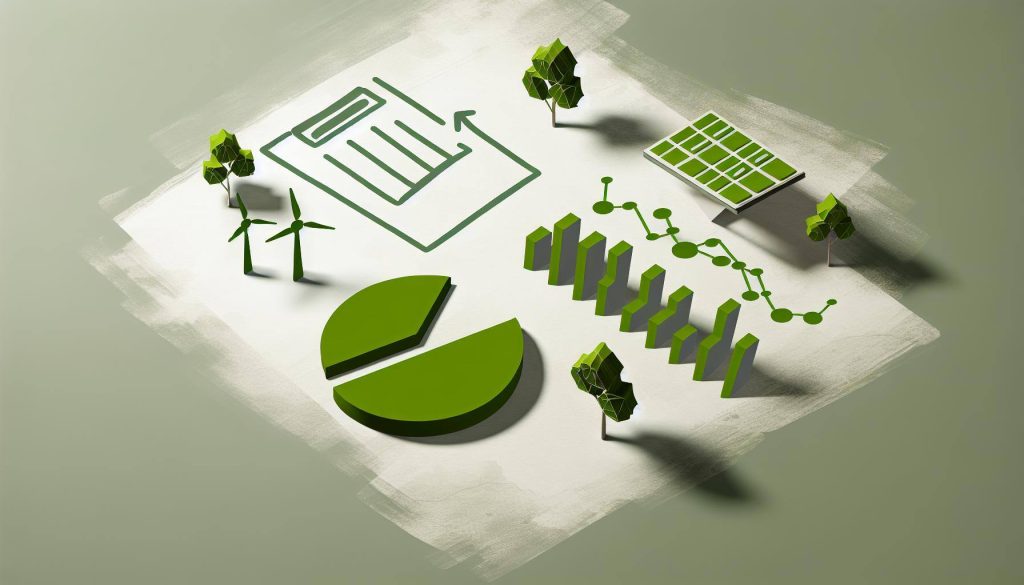Investing sustainably is crucial for those who want their portfolios to reflect environmental consciousness. Sustainable finance has become more relevant than ever, as it considers social and ecological aspects when evaluating investments.
By choosing companies that prioritize the health of the planet, investors can promote positive change while earning financial returns. This approach empowers individuals to support businesses that implement eco-friendly practices, contribute to climate change mitigation, and operate sustainably.
The rise of sustainable investment in America

Sustainable finance is gaining traction as more investors recognize the benefits of green and responsible investing. In the United States, this shift is evident in growing investments in companies dedicated to minimizing their environmental impact.
Institutional and retail investors alike are turning to businesses that demonstrate a commitment to reducing waste and lowering carbon emissions. The rise of ESG (Environmental, Social, and Governance) criteria has provided a framework for evaluating potential investments, guiding investors toward companies that truly value sustainability.
Evaluating environmental commitment in firms
When looking to invest in environmentally responsible companies, it is essential to evaluate their level of commitment to sustainability. Start by examining a company’s ESG ratings, which provide insights into their environmental impact and social responsibility.
Additionally, assess their sustainability reports, which often outline their initiatives and future plans for eco-friendly operations. It’s important to be able to identify any greenwashing practices, where organizations claim to be more sustainable than they truly are. By thoroughly reviewing a company’s public disclosures, investors can make informed decisions that align with their values.
Integrating sustainability into investment strategies
To further support sustainable finance efforts, investors should consider adjusting their portfolios to include a diverse range of green companies. Diversification across thriving sectors like renewable energy, clean technology, and sustainable agriculture can improve long-term investment prospects.
Working with financial advisors who specialize in responsible investing is another approach to building a portfolio that balances financial returns with ecological consciousness. By consistently evaluating and adjusting investments, individuals can ensure their financial strategies remain aligned with environmental priorities.
Practical steps for responsible investments
Embarking on sustainable finance requires practical and actionable steps to guide investment choices. First, identify personal values and pinpoint the environmental issues that matter most. Conduct thorough research on companies and funds with strong commitments to those issues.
Consider using investment platforms that prioritize sustainable options, offering tools that make it easier to choose eco-conscious companies. Lastly, regularly monitor investments to ensure adherence to evolving environmental goals, adjusting as necessary to optimize both financial and sustainable outcomes.
The growing impact of sustainable finance
The landscape of sustainable finance in the US is evolving, with more investors acknowledging its importance. By prioritizing environmental responsibility, individuals contribute to the broader movement toward ecological stewardship. This method of investing encourages businesses to adopt sustainable practices, ultimately fostering a greener economy.
As the demand for responsible investments continues to grow, sustainable finance will play a crucial role in shaping the future. Investors can take pride in knowing their financial decisions support not only their own aspirations but also the well-being of the planet.

